Emigration to Crete: The Essential Relocation Guide for EU and Non-EU Citizens.

Emigration to Crete: The Essential Relocation Guide for EU and Non-EU Citizens
Emigrating to Crete presents a unique opportunity for individuals seeking a life amidst the Mediterranean’s tranquil beauty and Greece’s rich cultural tapestry. Crete, the largest of the Greek islands, offers a more relaxed pace of life compared to the mainland, enticing those who yearn for a serene lifestyle surrounded by stunning landscapes and a close-knit community atmosphere. The island is an attractive destination for EU citizens who benefit from the freedom of movement within the bloc, simplifying their relocation process compared to non-EU nationals.
For EU citizens, moving to Crete involves fewer bureaucratic hurdles, as the right to live and work within any member state is a fundamental principle of the union. However, it is still crucial to navigate through certain formalities, such as registering with local authorities and obtaining a tax identification number to settle in smoothly. Non-EU nationals considering the move must be more meticulous in understanding the visa and residency requirements to secure their stay in Crete.
The decision to emigrate involves careful consideration of various factors including legalities, costs of living, and integration into the local culture. Greece’s hospitable environment coupled with the tangible benefits of residing in an EU member state makes Create an alluring prospect for those dreams of emigration. Whether it is the appeal of the ever-present history, the allure of the Mediterranean diet, or the prospect of endless azure seascapes, Crete stands as a testament to the idyllic European lifestyle.
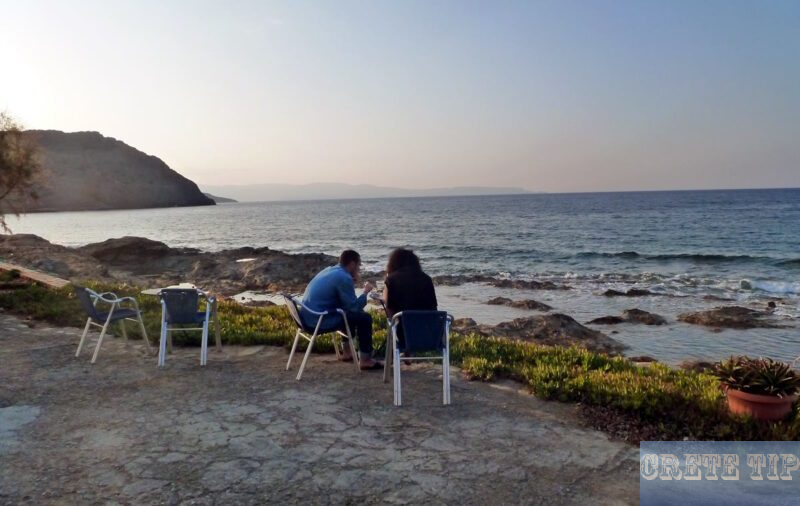
Understanding EU Immigration Policy
When considering relocation to Crete, understanding the EU’s stance on immigration is crucial. EU migration policies affect both EU citizens and non-EU nationals, shaping the processes and legal requirements for entering and residing in member states.
EU Migration Framework
The EU has established a comprehensive immigration framework that encompasses various policies to manage the influx of migrants. This framework includes the ‘Global Approach to Migration and Mobility’ (GAMM), which sets out the general strategy for the EU’s relationship with third countries in migration matters. It focuses on promoting orderly and safe migration, ensuring proper integration of immigrants and upholding the principle of solidarity among EU countries.
Brexit and Its Implications for Migration
Brexit has brought significant changes to immigration policy, particularly concerning the rights of UK and EU citizens. For UK nationals, the freedom of movement previously enjoyed within the EU has ceased. This has led to new regulations and requirements for those who wish to live or work in EU countries. Conversely, EU citizens must now follow specific guidelines outlined by UK authorities to reside legally in the UK.
New Pact on Migration and Asylum
In response to the challenges of migration, the EU has proposed the ‘New Pact on Migration and Asylum’. This comprehensive approach aims at enhancing the management of migrations in a fair and sustainable manner. It includes reforms on asylum procedures, resettlement, and humanitarian admission, and emphasises improving protection of the external borders. This New Pact is intended to rebuild trust among EU countries through a more reliable and effective EU institution framework.
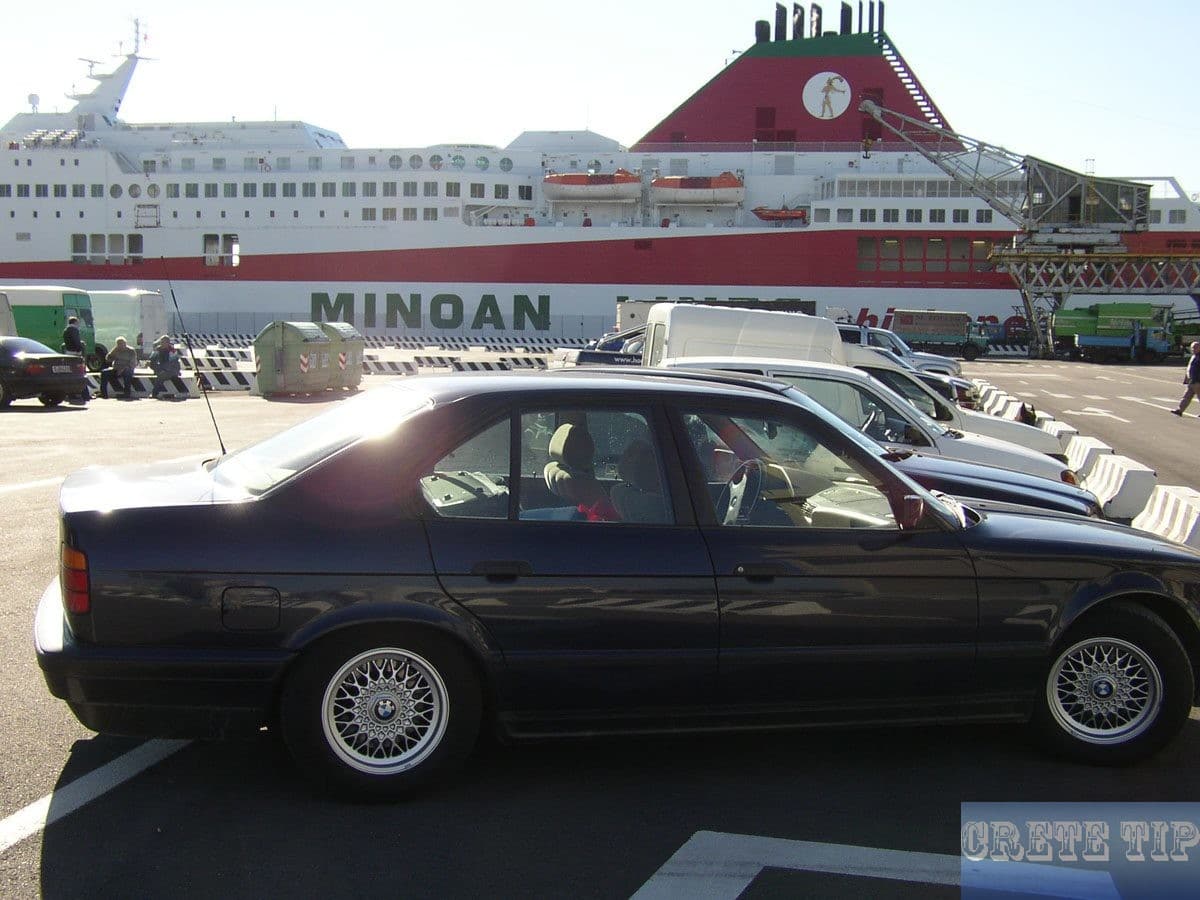
Moving to Crete: Legal and Administrative Procedures
When considering a move to Crete, it is essential to understand the various legal and administrative steps involved. This section outlines the necessary procedures for obtaining the appropriate documentation, whether you’re an EU citizen or hail from outside the Union.
Obtaining a Visa or Residence Permit
EU Citizens: EU citizens benefit from the right of free movement within member states, meaning they do not require a visa to enter Greece. However, for stays exceeding three months, it is necessary to register with the nearest municipality and obtain a registration certificate (usually at the local police station). You will need to prove your identity, e.g. with a passport, and provide proof of employment or sufficient income (or approx. Euro 4,000-5,000 in a preferably Greek bank account), health insurance or school enrolment, and a place of residence (rental contract or property).
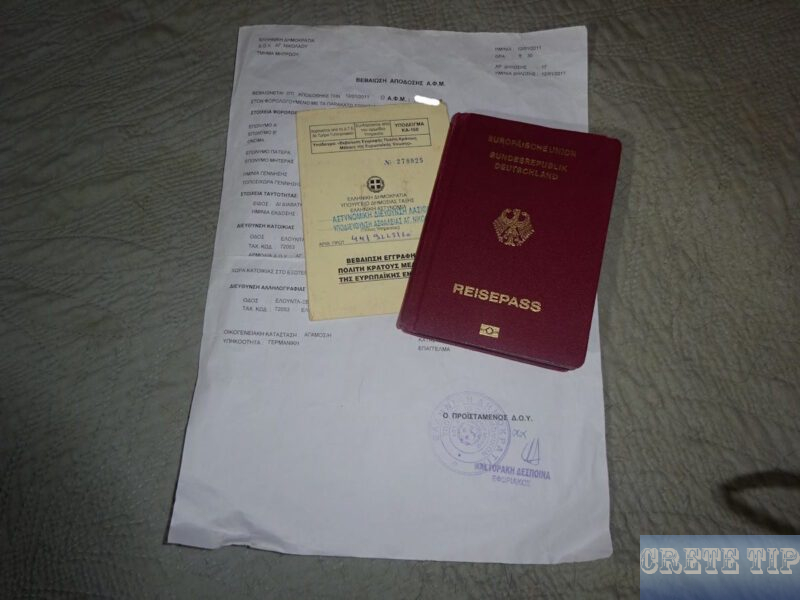
Non-EU Citizens: Those from outside the EU must navigate a more comprehensive process. A visa may be required for entry, and a residence permit must be sought for longer stays. Applications should be made prior to arrival or before the visa expires. Non-EU nationals intending to work or join family members in Greece will need to provide relevant documentation to support their application, which varies depending on their specific circumstances.
Rights and Responsibilities for EU and Non-EU Citizens
EU Citizens: Upon obtaining the registration certificate, EU citizens enjoy the same rights as Greek nationals in terms of employment, education, and social benefits. They are subject to national laws and must ensure they possess continuous health insurance, alongside maintaining their ability to support themselves without recourse to the social welfare system.
Non-EU Citizens: Non-EU nationals with a residence permit have the right to live and, depending on the permit type, work in Crete. After five years of continuous legal residence, they may be eligible for EU long-term resident status, which affords them additional rights similar to those of EU citizens. Long-term residents still need to adhere to certain integration measures and may be obliged to prove their language proficiency and knowledge of Greek society.
Both EU and non-EU citizens must remain aware of their responsibilities regarding tax, social security contributions, and adherence to Greek law, ensuring that their stay in Crete is compliant and enjoyable.
Life in Crete: Social and Economic Integration
Emigrants to Crete must navigate a myriad of elements crucial to successful integration, such as access to the labour market, education and healthcare services, and suitable housing and living conditions.

Labour Market Access
In Crete, the labour market is characterised by a high demand for tourism-related occupations, while other industries such as agriculture and services also play significant roles. EU citizens benefit from the freedom of movement and can seek employment without the need for a work permit, but non-EU citizens must secure a job and obtain a residence permit. Unemployment rates can be higher, especially in the off-season, so having in-demand skills and language proficiency are assets for the long-term economic integration.

Education and Healthcare Services
Education services in Crete are accessible to both EU and non-EU emigrants, with compulsory education being free. Higher education opportunities to study at the University of Crete can integrate emigrants into the local, academic community.
The healthcare system offers services to residents through the Greek National Health Service. EU citizens can access healthcare services with their European Health Insurance Card, whereas non-EU citizens will need to secure private insurance or contribute to the Greek social security system to gain similar access.
Housing and Living Conditions
The cost of living in Crete is relatively affordable, with lower housing costs than many parts of Europe. Emigrants can find a wide range of options, from city apartments to rural homes. As with hotel rooms, however, flat prices rise sharply with sea views and in certain tourist strongholds, while they are significantly lower in small villages inland or in the mountains.
As noted by Expatra, integrating into Cretan life can mean enjoying a slower pace of life and good value for money, however adequate financial support and planning are still necessary to secure comfortable living conditions. The island’s well-established expatriate community can also help new arrivals navigate the local property market and integrate into the social fabric of Crete.
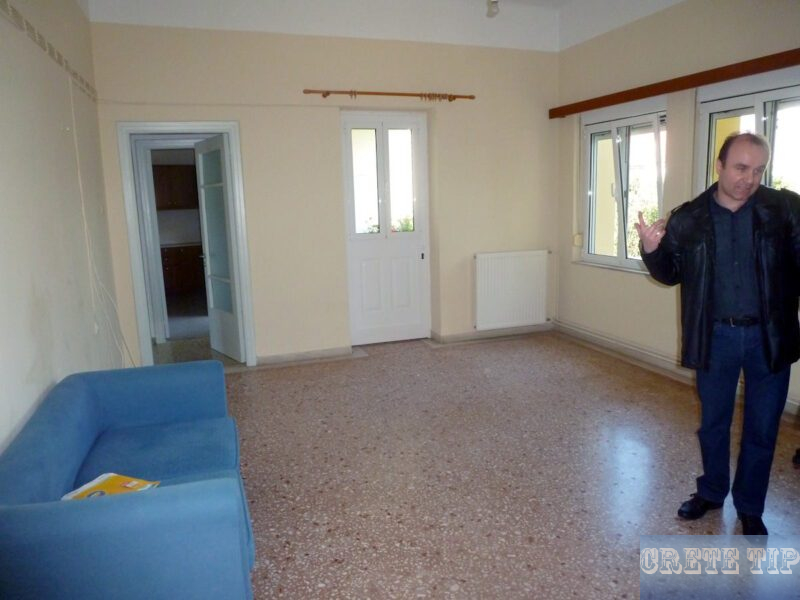
Cultural Acclimatisation in Crete
Relocating to Crete involves immersing oneself in the rich Greek culture and overcoming the potential language and cultural barriers that exist. It is essential for integration and creating a sense of belonging within the local community.
Overcoming Language and Cultural Barriers
Language is often the most significant barrier upon arrival in Crete. Although many locals speak English, especially in tourist areas, learning basic Greek is fundamental for effective communication and shows respect for the local culture. Engaging in language courses or online education platforms prior to the move can aid in this transition. For EU citizens, multiple initiatives aimed at enhancing European integration can be a helpful resource for language learning.
Cultural nuances in Crete can differ considerably from other EU countries, and understanding these nuances is key. For instance, Cretans value hospitality and kinship, which permeate their social interactions. Reading books about Greek culture, travelling around the island, and participating in local festivals can provide deeper insights into the social fabric of Crete.
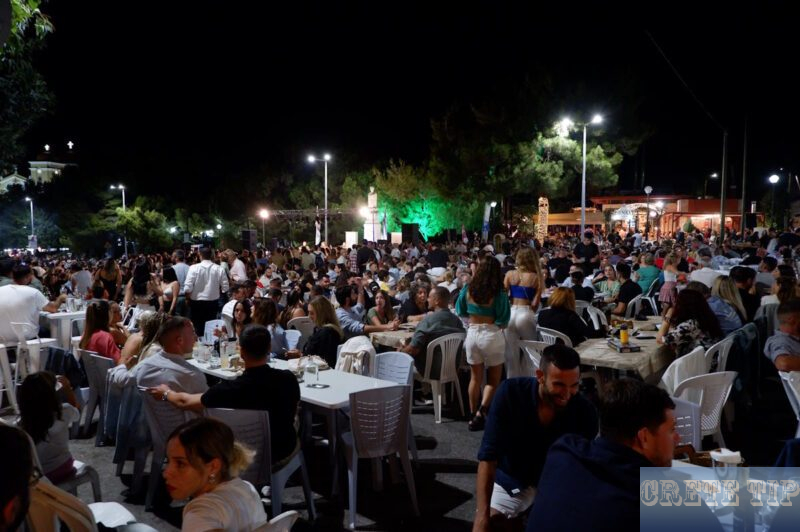
Community and Social Life
Embracing the community and social life in Crete is instrumental for integration. Newcomers should seek interactions with both expats and locals. The Cretan International Community offers support to facilitate this, including social events and networking opportunities which can serve as a platform for new residents to forge connections.
- Social Networks: Engaging with local clubs or groups based on hobbies and interests helps in building a local network and understanding cultural practices.
- Mobility: Exploiting the island’s geography through travel enables new residents to experience the diverse ways of life across different Cretan regions.
In conclusion, the journey towards cultural acclimatisation in Crete may be challenging, but through proactive engagement with language learning, cultural education, and social integration, it becomes a rewarding experience that enriches one’s life significantly.

Special Considerations and Support
When emigrating to Crete, it’s vital to recognise the specific needs of asylum seekers and refugees and the available support services that aid relocation. This section provides targeted advice for these groups and practical information on support mechanisms.
Asylum Seekers and Refugees
Asylum seekers and refugees must navigate a complex legal framework upon arrival in Crete. Asylum applications should be filed promptly to ensure the protection of human rights and access to necessary support. Unaccompanied children are a particularly vulnerable group, often requiring additional care and legal representation. It is crucial for them to receive timely assistance to safeguard against risks like trafficking. The Greek government, supported by the EU and various NGOs, works to protect these individuals through provision of shelter and assistance with relocation. In 2022, over 5,000 persons were relocated from Greece, demonstrating the commitment to solidarity and support within the European community.
Support Services for Relocation
Various entities provide support services for those relocating to Crete, assisting with everything from finding accommodation to integrating into the local community. For EU citizens, relocation support often involves practical information regarding the job market, healthcare registration, and education systems. Non-EU citizens might require additional aid in obtaining necessary visas or residency permits. Family members of EU citizens may have certain facilitations in their relocation process.
- Legal Assistance: Information on documentation and rights.
- Language Services: Helping to overcome language barriers.
- Employment Aid: Resources for job searching and skills recognition.
These services aim to make the transition smoother, ensuring that new arrivals can settle effectively into their new environment.

Frequently Asked Questions
When considering a move to Crete, potential expatriates typically have a number of queries regarding financial requirements, legal procedures, and employment opportunities. This FAQ section aims to address those concerns with clear, concise information.
What financial reserves are required for a move to Greece?
Financial stability is crucial when moving to Greece. Expatriates should ensure they have sufficient funds to cover living expenses, housing, and emergencies. It is recommended to have a financial buffer for at least six months to a year after relocating. With around €1,500 per month, you can live quite well on Crete – depending on the residential area – so €10,000 to €20,000 is recommended as a financial cushion.
What are the steps for an EU citizen to relocate to Crete?
EU citizens enjoy the right to live and work in Greece with minimal formalities. They need to register their residence within three months of arrival and obtain a registration certificate from the local authorities.
How can a non-EU national obtain a Greek residence permit?
Non-EU nationals must apply for a residence permit by providing proof of financial resources, health insurance, and, if applicable, a rental agreement or property ownership. Different types of permits are available depending on the purpose of stay.
What is the duration of stay allowed in Greece for UK passport holders post-Brexit?
Post-Brexit, UK passport holders can stay in Greece for up to 90 days within a 180-day period without a visa. Stays beyond this duration require a visa or residence permit depending on the nature and length of stay.
What opportunities exist for non-EU citizens seeking employment in Greece?
Non-EU citizens may find employment opportunities in fields where there is a shortage of available Greek workers. They must secure a job before moving to Greece and obtain a work permit through their employer as part of their residence permit application.
Could you explain the changes in Greek residence law that took effect in 2023?
Significant updates to Greek residence law in 2023 aimed at simplifying the procedures for obtaining and renewing residence permits. These changes included the introduction of new digital processes and the easing of some bureaucratic requirements to expedite the permit process.
Note: As I am not a lawyer, the above is the result of my personal research, opinion and experience. It does not constitute legal advice.



